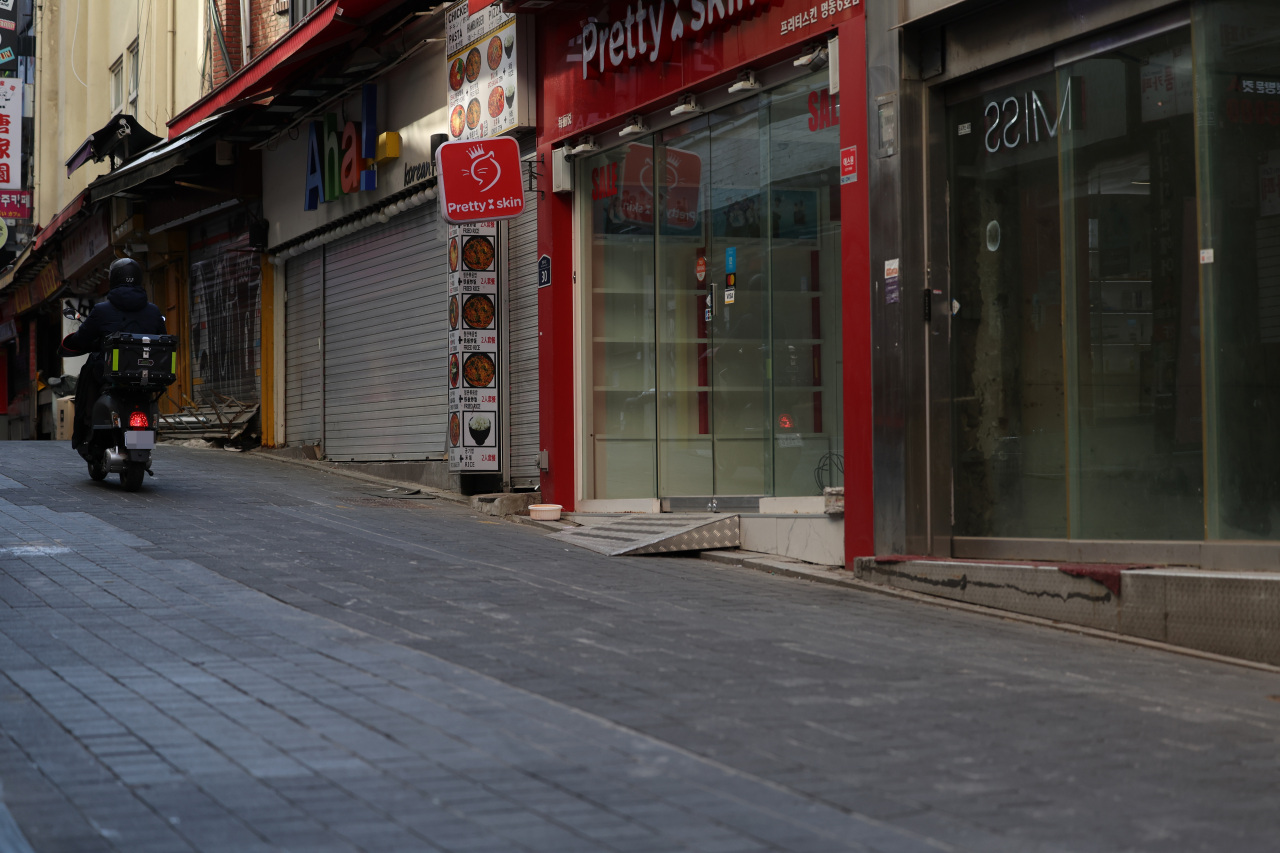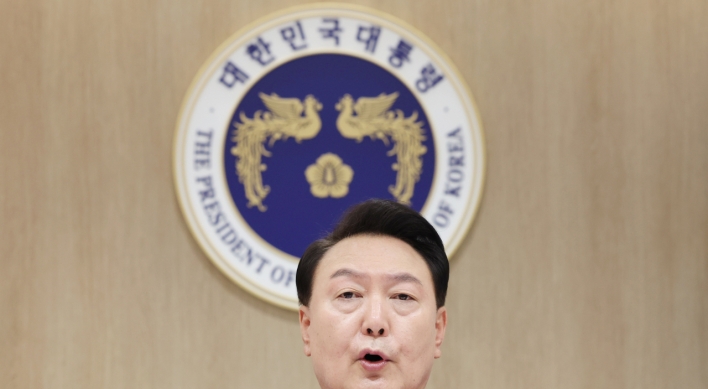Tighter virus curbs to hamper recovery in domestic demand: finance ministry
By YonhapPublished : Jan. 14, 2022 - 10:13

The South Korean economy is on a recovery track on robust exports, but the spike in COVID-19 cases and strengthened social distancing rules are feared to hurt domestic demand, the finance ministry said Friday.
Amid the fast spread of the omicron COVID-19 variant, external economic uncertainty has persisted as global supply chain bottlenecks have deepened and the Federal Reserve is ramping up a shift in its monetary policy, the ministry said in its monthly economic assessment report, called the Green Book.
"The country's exports have extended robust growth, and the number of employed people sharply rose, but stricter quarantine measures could affect domestic demand, such as in-person service segments," the report showed.
The South Korean economy faces growing downside risks from the latest upsurge in virus cases and the spread of the omicron variant.
The government has imposed tighter antivirus measures since mid-December, as the number of daily infections had soared to nearly 8,000. Daily virus cases dropped to the 4,000s this month.
The toughened antivirus restrictions, to be effective until Sunday, include a four-person cap on private gatherings across the nation and a 9 p.m. business hour curfew on cafes and restaurants.
Earlier in the day, the government decided to raise the cap on private gathering to six but maintain the curfew for the next three weeks though Feb. 6.
The ministry said sales at department stores and online shopping rose in December, but consumer sentiment worsened amid the flare-up in virus cases.
Card spending went up 18.1 percent on-year last month, marking the 11th straight month of gains. Sales at department stores increased 30.8 percent on-year.
But sales at discount stores fell 3.5 percent on-year, and the country's consumer sentiment index dropped for the first time in four months in December.
In the third quarter, private spending fell 0.2 percent from three months earlier, compared with a 3.6 percent on-quarter gain in the second quarter, according to central bank data.
Retail sales, a gauge of consumer spending, declined by the most in 16 months in November, even as the country relaxed virus curbs under the "living with COVID-19" scheme.
South Korea reported the biggest job addition in seven years in 2021, but in-person service sectors, such as accommodations and eateries, suffered job losses due to the fallout of the COVID-19 pandemic.
The finance ministry said the central bank's rate hike will likely boost debt-service burdens for households, but it will also help tame inflation and curb the won's weakness over the medium term.
Earlier in the day, the Bank of Korea (BOK) raised the benchmark interest rate by a quarter percentage point to 1.25 percent. It marked the third rate increase since the BOK made its first pandemic-era rate hike in August last year.
"Over the medium term, the rate hike is expected to ease inflationary pressure and have a positive impact on the FX market. So it may take time to gauge its impact on private spending," Kim Young-hoon, a finance ministry official, told a press briefing.
The Korean currency has sharply weakened against the US dollar in recent weeks on the prospect that the Fed is expected to tighten its monetary policy at a faster-than-expected pace. The won declined 8.6 percent against the greenback last year alone.
A weaker won puts upward pressure on inflation, as it boosts the cost of imports. The won's fall, meanwhile, puts Korean exports at an advantage in price competitiveness. (Yonhap)
Amid the fast spread of the omicron COVID-19 variant, external economic uncertainty has persisted as global supply chain bottlenecks have deepened and the Federal Reserve is ramping up a shift in its monetary policy, the ministry said in its monthly economic assessment report, called the Green Book.
"The country's exports have extended robust growth, and the number of employed people sharply rose, but stricter quarantine measures could affect domestic demand, such as in-person service segments," the report showed.
The South Korean economy faces growing downside risks from the latest upsurge in virus cases and the spread of the omicron variant.
The government has imposed tighter antivirus measures since mid-December, as the number of daily infections had soared to nearly 8,000. Daily virus cases dropped to the 4,000s this month.
The toughened antivirus restrictions, to be effective until Sunday, include a four-person cap on private gatherings across the nation and a 9 p.m. business hour curfew on cafes and restaurants.
Earlier in the day, the government decided to raise the cap on private gathering to six but maintain the curfew for the next three weeks though Feb. 6.
The ministry said sales at department stores and online shopping rose in December, but consumer sentiment worsened amid the flare-up in virus cases.
Card spending went up 18.1 percent on-year last month, marking the 11th straight month of gains. Sales at department stores increased 30.8 percent on-year.
But sales at discount stores fell 3.5 percent on-year, and the country's consumer sentiment index dropped for the first time in four months in December.
In the third quarter, private spending fell 0.2 percent from three months earlier, compared with a 3.6 percent on-quarter gain in the second quarter, according to central bank data.
Retail sales, a gauge of consumer spending, declined by the most in 16 months in November, even as the country relaxed virus curbs under the "living with COVID-19" scheme.
South Korea reported the biggest job addition in seven years in 2021, but in-person service sectors, such as accommodations and eateries, suffered job losses due to the fallout of the COVID-19 pandemic.
The finance ministry said the central bank's rate hike will likely boost debt-service burdens for households, but it will also help tame inflation and curb the won's weakness over the medium term.
Earlier in the day, the Bank of Korea (BOK) raised the benchmark interest rate by a quarter percentage point to 1.25 percent. It marked the third rate increase since the BOK made its first pandemic-era rate hike in August last year.
"Over the medium term, the rate hike is expected to ease inflationary pressure and have a positive impact on the FX market. So it may take time to gauge its impact on private spending," Kim Young-hoon, a finance ministry official, told a press briefing.
The Korean currency has sharply weakened against the US dollar in recent weeks on the prospect that the Fed is expected to tighten its monetary policy at a faster-than-expected pace. The won declined 8.6 percent against the greenback last year alone.
A weaker won puts upward pressure on inflation, as it boosts the cost of imports. The won's fall, meanwhile, puts Korean exports at an advantage in price competitiveness. (Yonhap)




















